Punishment may await Australia’s returned jihadi brides
Repatriating Islamic State families undeniably brings security and legal challenges, but should be done for ethical and national security reasons, a leading counter-terrorism expert says.

Repatriating Islamic State families undeniably brings risk but should be done for ethical and national security reasons, a leading counter-terrorism expert says.
Katja Theodorakis, head of counter-terrorism at the Australian Strategic Policy Institute, said Australia had a range of policy and legal options in place to deal with returning families.
The precedent case of the repatriation of two young family groups to Australia several years ago and the experience of other countries in repatriating children and adults could also be drawn upon.
“Repatriation of women, children and especially men is undoubtedly fraught with security and legal challenges, as well as ethical ones, but the Australian government cannot ignore the responsibility of Australian IS members and foreign fighters any longer, leaving the burden and risk with other nations, especially those inadequately resourced and otherwise ill-prepared to meet the burden,’’ Ms Theodorakis said.
“We have to do some deeper thinking on what encompasses the public interest here.’’

Non-resident fellow at the Lowy Institute Rodger Shanahan said the key to repatriating the women was getting enough admissible evidence to allow arrest warrants to be issued for all of them prior to a return.
“Failure to do this may well allow some returnees to walk free on return, posing a security risk that will need addressing,’’ he writes in Monday’s The Australian.
The Syria Question

‘Give them a childhood’: mum
Pressure is mounting on the Albanese government to deal with the problem it inherited from the Coalition and repatriate Australian citizens from Syria.
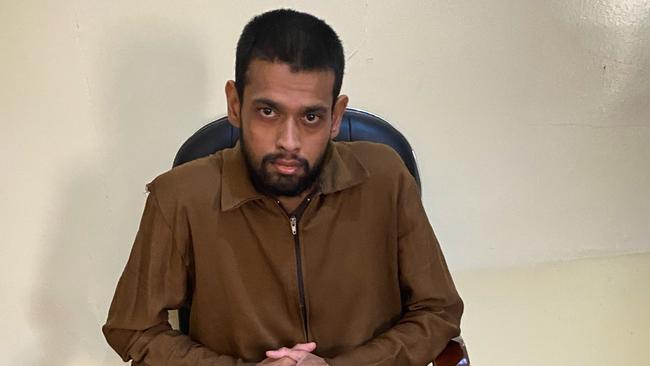
‘I didn’t do anything wrong. I want to come back’
An Australian member of Islamic State locked up in a Syrian prison is begging for forgiveness from his parents and wants to come home, saying he poses no threat.

ISIS families stranded by domestic laws
Government is not legally required to bring ISIS families home, but should do so to meet international obligations, law expert says
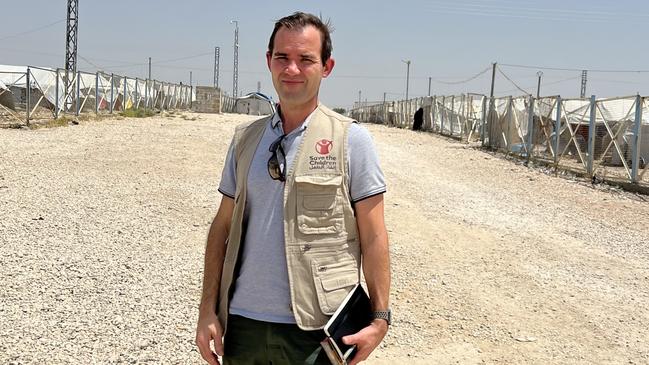
Aid chief proves Syria trip can be done
For years, the previous government said it was too dangerous to extract women and children. Save the Children’s Australian chief Mat Tinkler set out to dismiss that claim.
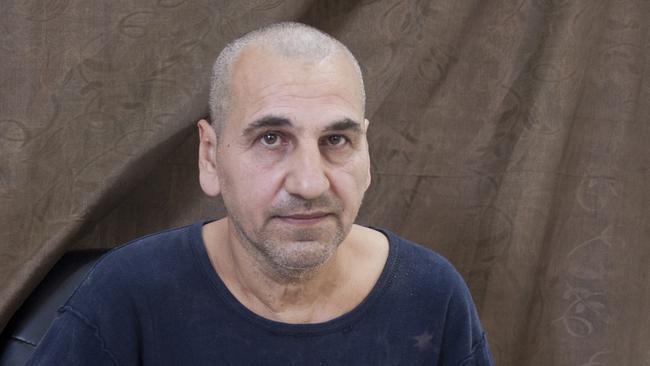
Roll call of the terror-linked prisoners
Australian men are among ISIS-linked prisoners in Syria.

Mystery over death of jailed Aussie teen
Officials and family seek answers over how Sydney teen Yusuf Zahab lost his life in the Syrian prison after an Islamic State attempted jailbreak.

Australian law does not require we bring Syria families home
Rather than safeguarding their rights, our legal system arms our government with extraordinary powers to prevent citizens from returning.
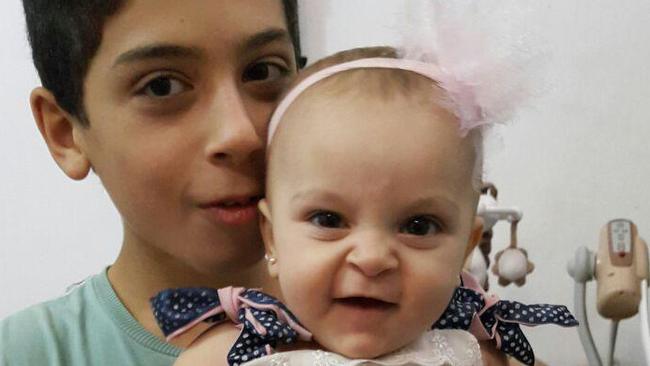
Aussie teen in Syrian prison feared killed
A 17-year-old Australian boy detained for three years without charge in a men’s prison in Syria is believed to have been killed after Islamic State attacked the jail trying to free their fighters.

Jihadi brides’ return ‘risky but ethical’
Repatriating Islamic State families undeniably brings security and legal challenges, but should be done for ethical and national security reasons, a leading counter-terrorism expert says.

Two of the saddest little girls you’ll meet
For the last seven years, Assya and Maysa Assaad have lived either under the rule of IS, or locked in a camp in the desert. All they want to do is go to school.

‘I go to sleep fearing they will be taken from me’
Mariam Raad wants stability and an education for her children, and a job for herself. But as a widow with four children living in a prison camp, her future is precarious.

Repatriated kids live quietly in community
The families of two dead IS fighters repatriated from Syria by the Australian government have been living in the community for several years.
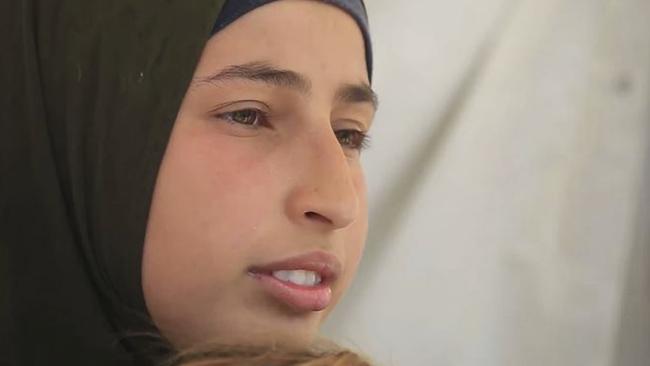
Childhood lost: ‘Sometimes I feel like time has stopped’
Shayma Assaad had barely finished Year Nine in Sydney when she was taken to Syria, married off and impregnated. Hers is one of the most disturbing stories of all the Australian women trapped in al-Roj camp.
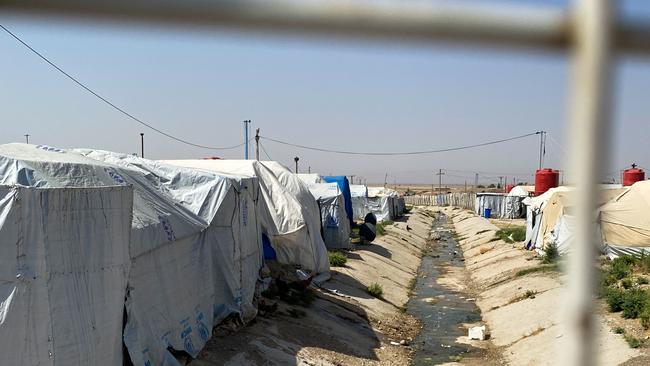
No exit and no hope in ‘torture’ camps
‘This is not a holiday camp, it’s not a refugee camp, it’s not a place where the basic needs of human beings are met in any way.’
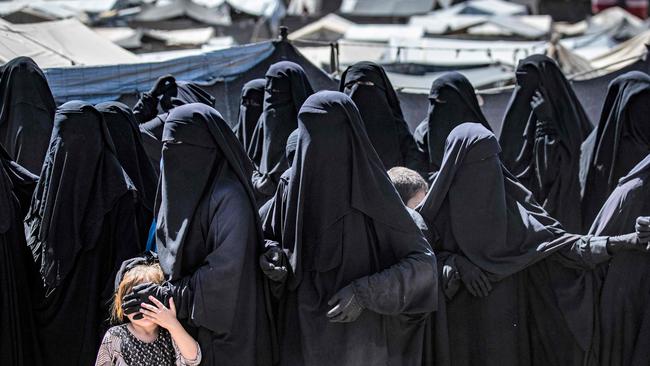
Time to decide what becomes of those left behind
There’s little sympathy in Australia for fellow citizens trapped in Syrian camps. Instead, there’s a dangerous ignorance of the truth.
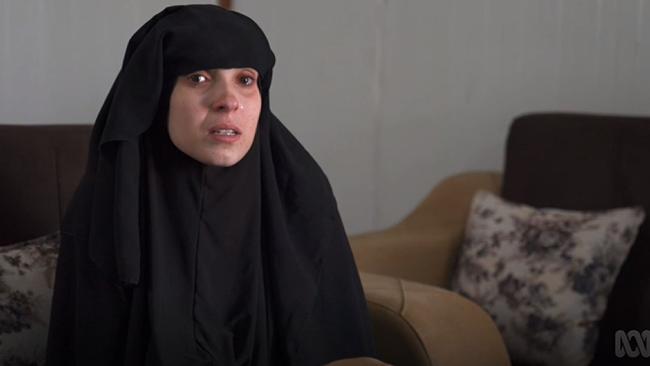
Jail swap sent Aussie mum, baby back to Islamic State
Sydney woman Nesrine Zahab has revealed how she fled ISIS while pregnant, only to be returned to the extremist group with her newborn baby in a prisoner swap.
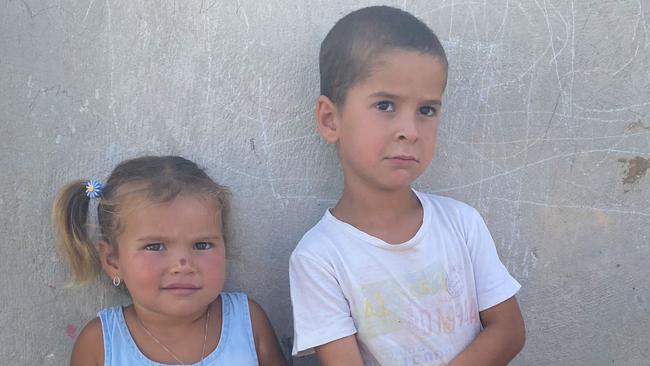
Islamic fate: the lost heirs of Aussie terror
Pressure is mounting on the PM to repatriate Australian women and children held in camps for Islamic State families in Syria, amid fears their indefinite detention is leading to a national security disaster.
The Australian understands fewer than 10 of the women overseas would likely be charged upon return to Australia. Those who were would likely face charges of entering a proscribed area, relating to Islamic State’s de facto capital Raqqa, in 2014-17. The charges carry a maximum 10-year jail term but authorities think it unlikely Australian women would receive such lengthy terms.
Other potential charges could include being a member of a terrorist organisation, or providing material support. The women have all agreed to be placed on a court-directed control order, where their movements, associations and communications were monitored. They could be ordered to wear tracking devices and submit to home curfews.
Dr Shanahan said control orders had proven effective tools in monitoring the actions of people convicted in Australia of terrorism offences.
“Of 14 terrorism-related control orders issued, nine have been breached, which indicates not only a proclivity for terrorism offenders to ignore state-imposed orders but also the instruments’ effectiveness in alerting authorities to an individual’s willingness to reject state authority,’’ he writes.
Other countries used options ranging from family law court orders for minors to war crimes charges to manage their returnees.
“Finding a solution other than indefinite detention without charges also involves exploring potential evidence for international crimes such as torture, war crimes, crimes against humanity or genocide,’’ Ms Theodorakis said.
“In Germany, investigations and prosecution of women have increased as understandings of their varied roles are emerging.
“The specific war crimes included ‘outrages upon personal dignity, pillage, recruitment of child soldiers and the killing of a person protected under International Humanitarian Law’; the pillage charge was the result of the women living in houses seized after the owners were driven out or killed by IS.
“One Dutch woman who had shared and added degrading commentary to videos in which captured prisoners were executed by IS members in Syria was even tried and convicted of a war crime without leaving The Netherlands.
“Australian legal experts have pointed to the notable absence in public and political discourse of considering war crimes in this context. Some countries, including Germany, have charged returning women with offences centring on their children, for example child abduction or failure to fulfil their duty of care and education (such as taking a child into a war zone), or war crime charges in relation to Yazidi slaves.
“In France, female returnees are arrested upon arrival and placed in pre-trial detention in isolation units; they have so far been charged with child endangerment and/or war crimes; on average, a prison sentence of six to seven years has been handed down.
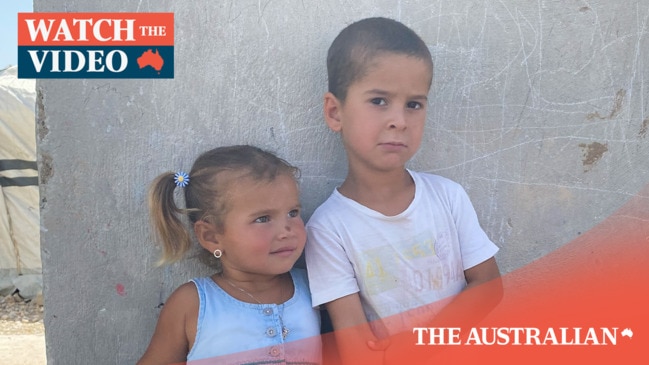
“In Germany, figures from December 2021 put the average jail term for female returnees from Syria and Iraq who joined the Islamic State between 2011 and 2021 at three years and 10 months.
“This is followed by an extensive, multi-pronged rehabilitation regime that draws on and expands existing mechanisms and initiatives.’’
However, Ms Theodorakis said managing the returning families should be about much more than just monitoring from a security and law enforcement perspective.
“While this is necessary, it is resource-intensive and most importantly does not provide a full solution: the challenge is to balance paedagogic, psychosocial, and security concerns, especially when we are talking about children suffering from possibly severe and complex trauma,’’ she said.

“Practitioners and experts stress that a long-term view on the challenges is needed, what is often referred to as tertiary prevention. Especially when returned children come into puberty, the re-emergence of traumas is common.
“In addition, the phenomenon of radicalised girls barely into their teenage years is identified as a particular challenge.”
Ms Theodorakis said it was important to remember children should primarily be treated as victims. For the women, “acknowledgment of (their) agency must be key even as levels of criminal culpability will vary.
“Dealing with female returnees poses particular challenges for security agencies and law enforcement, especially as many of the detained women claim victim status now, relying on IS’s fundamentalist role for women as ‘faithful mothers and housewives’.”
Ms Theodorakis said Islamic State-linked families “already pose a risk, and this will grow if we leave them over there … Aside from the ethical dimension and the damage to our international standing, it’s simply not an effective approach to reducing the terrorism risk.’’
